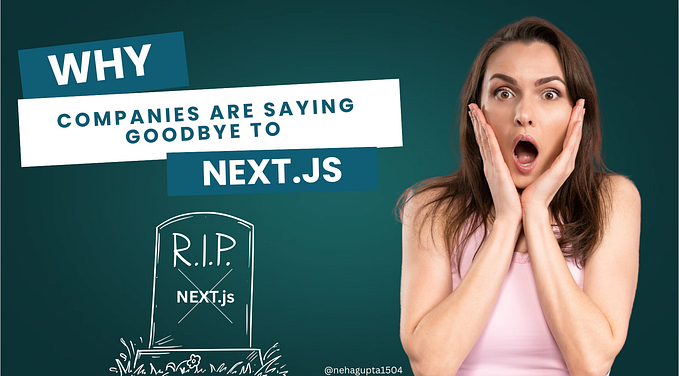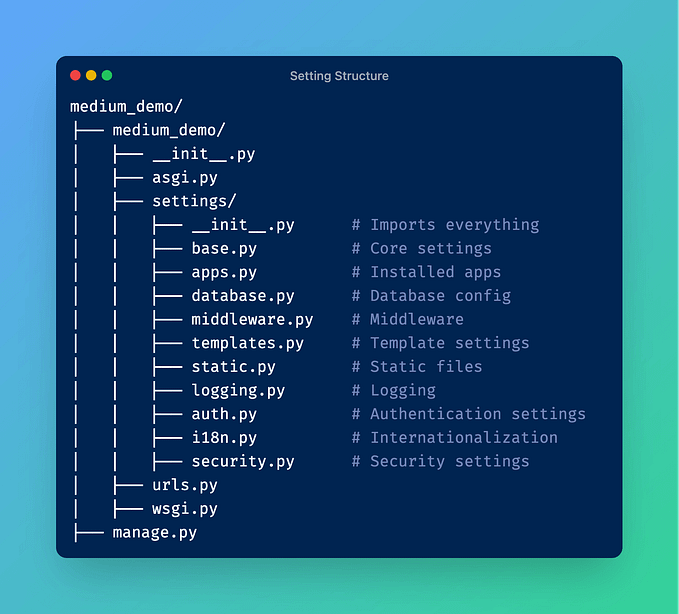How Grad School Turned me into Darth Vader
(NOT the war crimes, this is not about the war crimes, this is about how a desiccated institution nearly drove me to my doom)
The Star Wars prequels are, ostensibly, about the fall of the Galactic Republic and the rise of the Empire, as well as the origin of Darth Vader, one of the most iconic villains of all time. It’s rare to see stories so grand in scope that are also… so hamstrung by the way they’re told. And nowhere is this clearer than in the central figure of Anakin Skywalker, the boy-turned-man who is both the Hero with No Fear and doomed to become Darth Vader. His portrayal is often as distressing as it is compelling.
When we are introduced to “adult” Anakin in Attack of the Clones, he is impetuous, demanding, and full of insecurities that have nowhere to go. Watching him clumsily pursue a romantic relationship with future (secret) wife Padmé and whine about the mix of jealousy, admiration, and resentment he feels toward his mentor Obi-Wan are equally cringeworthy, and it’s extremely easy to write off Anakin’s character as “bratty, entitled teen” and call it a day. He oversteps Padmé’s boundaries; he fails to respect Obi-Wan’s experience and knowledge; he consistently rejects the help that is offered to him because he’s convinced that he needs to be a one-Jedi machine. It’s no wonder that after watching Attack of the Clones most people agree that Anakin Skywalker is, at best, annoying. At worst, he’s creepy, murderous, and proto-fascistic. This guy sucks! And while some of those issues are walked back during Revenge of the Sith, it’s too little, too late.
If that’s true, then what is this piece about?
Talking about the Star Wars prequels, and Star Wars in general, is difficult. For such a popular and enduring piece of media the writing quality of the source material is deeply uneven (to put it generously), leading scores of fans to build vastly differing interpretations of the story. Some of these might be rooted in attempts to better-understand Lucas’ intent underneath the nails-on-a-chalkboard dialogue, but others are simply the audience’s way of reframing characters to make them more palatable, simpler, or otherwise fit them into a broader Star Wars timeline that often doesn’t make much sense. Then there’s all the adjacent material — the comic books, the novelizations and spin-off book series, the animated tv shows… All of this builds up to a fanbase that has wildly variable opinions on what Star Wars is, and what the characters and institutions in it represent. Ultimately, we bring our lives with us to Star Wars, and our experiences form the lens through which we interpret it. That’s cool! That’s what art does!
I find the above preamble necessary because it helps explain why my relationship to Star Wars has shifted over time as I’ve moved through different phases of my life. I felt one way about Star Wars, then I went to grad school, got a PhD, and found I looked at Star Wars a little bit differently. Neither interpretation is more “correct” than the other; the narrative of my life just happened to shift, and with it shifted the ways I identified that narrative in the media I consumed. That’s important, because one day I woke up and realized I no longer saw Anakin Skywalker as a monster-in-the-making whose fall to the dark side was almost embarrassingly transparent — I saw myself in him.
This was very upsetting at the time because, as discussed above, Anakin is generally considered to be The Worst, for good reason. He is angry, impulsive, and easily manipulated. His few moments of light are scattered between long stretches of sulking, and that’s before he becomes one of the most well-known villains in movie history. He’s committed actual war crimes. How could I somehow see myself in that?
I kept silent about this unfortunate personal revelation (probably wise) and soldiered on towards my dissertation, but unfortunately that wasn’t the end of it. Anakin Skywalker haunted me. I found him in every resentful thought, each prideful wish — and towards the end of my PhD, I had plenty of both. After leaving grad school behind and having more space to sit with my discomfort, I’ve finally reached an understanding between Anakin and myself that I think has merit, as a critique of both Star Wars and real-world academia.

There are many arguments among Star Wars fans about the cause of Anakin Skywalker’s downfall. It is to the prequels’ credit that, despite showing us exactly how it happens, audiences have spent over a decade debating why events transpired as they did. The argument often breaks down along two basic camps: did Anakin fail as Jedi, or did the Jedi Order fail him? Did Anakin’s failure to be a “good Jedi” mark him as doomed from the start, or did his fellow Jedi have an obligation to help him become a good Jedi that they then neglected?
For me, both interpretations hold weight. Anakin is vastly unsuited to be a Jedi — the movies laboriously illustrate this point — but the definition of “Jedi” that he is given is also deeply flawed. By the start of Revenge of the Sith, he is riddled with contradictions that keep him both high-performing and in a constant state of doubt. He doesn’t agree with many of the Jedi teachings and actively breaks their code to live more of the life he wants. However, he also deeply, desperately wants to be a good Jedi and have his worth be recognized by other, more senior members of his order. As the movies march on (as well as in Clone Wars, the animated show), we start to notice that his ideals of what the Jedi could and should be are at odds with what they are. The weight of these contradictions will tear him apart.
The problem of Anakin Skywalker’s fall became increasingly compelling at the end of my PhD. Like many graduate students, I sank into despair, questioning myself and my ability to achieve my dreams as a scientist. Worse, I was trapped a constant internal debate about whose fault it was that I was struggling so much. Had I embarked on a path for which I was deeply unsuited, or were the many seen and unseen hurdles of academia unreasonable? Was I not smart enough for academia, or was academia designed for me to fail? And, regardless of whose fault it was, what was I going to do about it?
The answer was, apparently, “project all of my problems on fictional characters.”

Despite the inherent silliness of the comparison, I do think there’s some weight in considering the problem of Anakin Skywalker in the context of the many problems of academia. Much like academia, the Jedi Order at the time of the fall of the Galactic Republic is a deeply entrenched institution whose evolved ways of being — the Jedi Code — act less as guidelines and more as a turgid set of norms that must be upheld to the last.
In The Phantom Menace, Anakin arrives at the temple on Coruscant expecting the Jedi to live up to their legends: freeing oppressed peoples and bringing peace to the galaxy. Instead, he finds them too deeply enmeshed in the Republic’s ever-growing political morass. Meanwhile I, and many students like me, entered graduate school hoping to join a community dedicated to the pursuit of knowledge, only to find that academia’s primary function is simply the reproduction of itself. As institutions, the goal of the Jedi Order and the academy at their most base level is to survive. As padawans and students alike have found, this institutional purpose is often fundamentally at odds with the health and safety of its members. It also renders them inflexible when faced with the changes necessary for them to continue on.
The Jedi take promising young minds and either mold them to propagate their ideals or discard them–though of course the “discarding” is framed politely as a poor fit or lack of aptitude. It is of no surprise to any graduate student that academia also operates like this. Anakin joins when he is relatively old, which is already a strike against him, but must be grudgingly accommodated because of his status as the “Chosen One.” Jedi treat him with great suspicion for the ways he intentionally and unintentionally flouts their code (Mace Windu), isolate him by naming him as a destined savior (Qui-Gon Jinn), or feel obligated to support him but are vastly unprepared to do so (Obi-Wan Kenobi). Anakin knows that he is gifted; it is one thing that no one can deny him. What builds his resentment is his inability to connect what he’s capable of to the expectations others have for him. The Jedi expect their Chosen One to become the perfect Jedi, and nothing less.
I entered my graduate program a lot like Anakin: young, full of promise, and optimistic despite my knowledge of and disagreement with academia’s many issues. I carried the weight of expectations that come from being a lifelong high-achieving student. I was good at the kinds of things that western education looks for, which convinced me that going further into academia was a natural path for my abilities. I made myself the Chosen One of my silly little corner of the universe, ready to solve the problem of Mars and reveal the truth of Saturn. It soon became clear that what I knew about academia’s failures was a small fraction of a much larger breakdown.
I was met with an institution, and the people mired in it. Every bright thing about me, every strength I’d ever had, mattered less than nothing if it couldn’t turn me into what academia needed me to be, and what I needed to be was itself impossible. I was informed early and often that I was unsuited to my field and my chosen career, while at the same time others told me I was exactly what academia needed. As my PhD dragged on, the tonal whiplash between encouragement and discouragement ceased being funny and became a deep, enduring ache. I have heard it before, and I will hear it again: I don’t belong here. And yet I stay. What for? Defiance? Community-building? Fear?
It is a terrible thing to look at the institution that’s supposed to make you into the best version of your chosen self and realize that, in trying to become that ideal, it may have made you worse. Worse still, even when you realize that you were set up to fail, some part of you will always, always think that there’s some way you can still win. That knowledge broke Anakin Skywalker, and almost broke me.

Anakin Skywalker ends Revenge of the Sith consumed by hate. He’s killed untold numbers of innocents; he’s strangled his wife; he’s cast the galaxy into darkness, ruined his life, and now he’s screaming fury at his mentor while he burns in agony. Anakin has become a horrible thing that even Obi-Wan, who loves him deeply, cannot look upon — even though Obi-Wan is undeniably one of the people that put him there. In Anakin’s desire to gain control, he dooms himself to a profound powerlessness. And from there, he hates.
There was some nebulous moment, deep in the middle of grad school, when I had the thought for the first time. I was working nonstop, but never seemed to make a dint in the task at hand. I was determined to succeed through intelligence, infinite work hours, and my own force of will, but my hero’s journey never happened. I cut out hobbies and free time to focus on the parts of me that were useful! Yet still I struggled. It was then that I stared emptily at the wall and wondered: if I continued on this path, what would I become? Would I still be a person at the end of it?
I kept going, which meant I did get to find out. That’s where Anakin Skywalker found me.
Academia’s failures are systemic; its casualties are personal. I could wake up every day with the knowledge that academia is designed to resist change, to reproduce a singular vision of “who” a scientist is, and grind complaints under the wheel of bureaucracy until they can be wiped away, and that knowledge would not save me. I came to understand, as Sara Ahmed puts it, that “when the judgment that you do not belong here has already been made, you have to work hard not to provide evidence to support that judgment,” but understanding my trap would not rebalance the power. I could have all the intelligence, the grit, the drive, and never be deemed “worthy”, because the system chooses its own. I learned all this, and yet a small part of me hoped, desperately, that it wasn’t true, that if I just slept a little less and excised every last want, then I could make up the difference.
One day I woke up to find that I was nothing more than Darth Vader at the edge of the lava, screaming at the world for what he’d become. I hated the system for convincing me I was worthless, myself for not leaving, the countless people in power for throwing up their hands to do a big show of sympathy and nothing more, and my friends and family for constantly asking what happened to me. I had asked for help and received, at best, pity. At worst, I was simply encouraged to quit. I could see how everything about academia and myself had combined perfectly to put me in the hole, but I couldn’t climb back out. I woke up every day, wrote and fixed code and made figures, but it all felt like burning. And it did not stop.
That was the day I saw myself in Anakin Skywalker.

Let’s return to the original question: whose fault is it that Anakin Skywalker became Darth Vader? How much of it was his own foolish pride, his conviction in his role as the “Chosen One,” his inability to see blatant manipulation for what it was? How much of it was the Jedi Order, who could not challenge their own ways to better help him, who deferred the bulk of his teaching to a traumatized and under-prepared mentor, and Palpatine, who led him to the worst possible conclusions about his future?
The unsatisfactory answer is that the blame is everyone’s and no one’s. Anakin becomes a monster through his own choices, but those choices are circumscribed at every turn. His requests for help are met with far less than what he needs. In his world, being a Jedi is less about intent or ability and far more about playing a role. In mine, the performance of science, of being a scientist, is often very separate from the doing of it. Neither of us woke up one day surprised to be on fire; it took years of trying, of doubt, of knowing our worth and what we have to give and understanding that it would not be valued. There are a lot of differences between us — he had a willing, if flawed mentor in Obi-Wan, while those in charge of me quickly lost interest. He had an evil guy gaslighting him; I was left so alone and unmentored that I was left to do my own gaslighting myself (I was very good at it!). I also did not snap, bend the knee to a fascist, and commit war crimes for 20+ years.
Those are big differences, but at the time they weren’t big to me. The responses to my attempts to demand a version of graduate school that treated me and other graduate students right made me sad, and then angry, and then absolutely unhinged. At the end of my path, with no leverage and no way out, at the behest of an institution invested in convincing graduate students that this cycle is what we deserve, I became what they asked of me. I was my own hateful little Vader.
The real difference between Anakin and I is that I got some version of what I wanted: I got my PhD, and I got out. I’m still in academia, so I haven’t really left, but these days I’m a lot less like Anakin Skywalker and a lot more like me. I feel joy. I have a life (kind of). I go outside to feel the sun on my face and each time I do, there’s a little less of me left in the fire.
Anakin spent a long time trying (and failing) to be a good Jedi. I spent a very long time trying to be the “right” kind of scientist, only to realize that the definition is flexible, and can evolve to decide who “fits” and who does not. In The Last Jedi, Star Wars asks us to stop clinging to doctrine and build something new. As I try to move on, my approach to science might be a lot like that. It doesn’t have to be a whole code, rigid and complex. Just the basics: I want to do more good than bad. I want to bring more wonder to the world and less pain. I want to turn “science” and “scientist” into support structures rather than fences.
We are more than all the things academia tries to turn us into. I don’t want to see the fall of any more Anakin Skywalkers.









